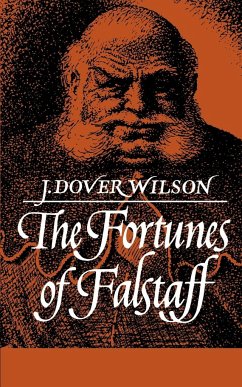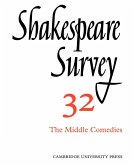Dr Dover Wilson examines Falstaff's role in the two parts of Henry IV and his relationship to the Prince. Like most other Shakespearean scholars he had accepted. Bradley's portrait as shown in The Rejection of Falstaff, until (as he writes) he 'began checking it with yet another protrait - that which I found in the pages of Shakespeare himself. As the result of much recent work on the two parts of Henry IV, a new Falstaff stands before me, as fascinating as Bradley's, certainly quite as human, but different; and beside him stands a still more unexpected Prince Hal. The discovery throws all my previous ideas out of focus.' As the reviewer in the Times Literary Supplement wrote, Falstaff 'is no hero, as the romantics have tried to make him out, nor is he merely a typical and traditional stage-butt. But he is Falstaff riding for a fall; and when he takes his toss he is up again in still unconquerable effrontery and humour ... The Prince as we watch him through Dr Dover Wilson's eyes growing in grace, first in chivalry and then in justice, we do more than observe the making of a hero-king. We get to know a very lovable, faulty, generous, noble-minded young man; and a character in the play whose scenes are so far from being mere padding between Falstaff's that the whole is seen as a masterpiece of construction.'
Hinweis: Dieser Artikel kann nur an eine deutsche Lieferadresse ausgeliefert werden.
Hinweis: Dieser Artikel kann nur an eine deutsche Lieferadresse ausgeliefert werden.








